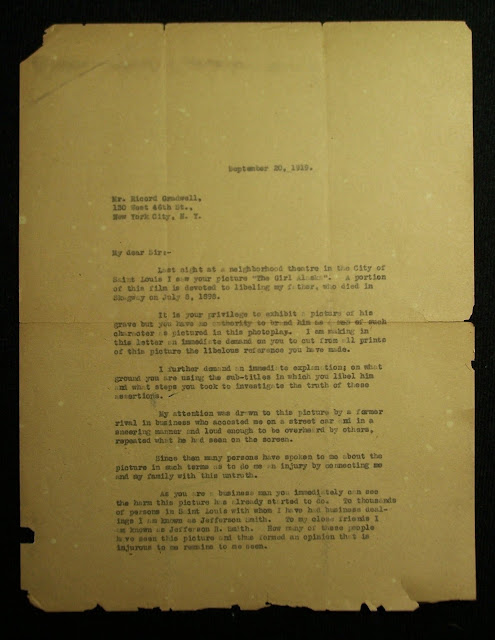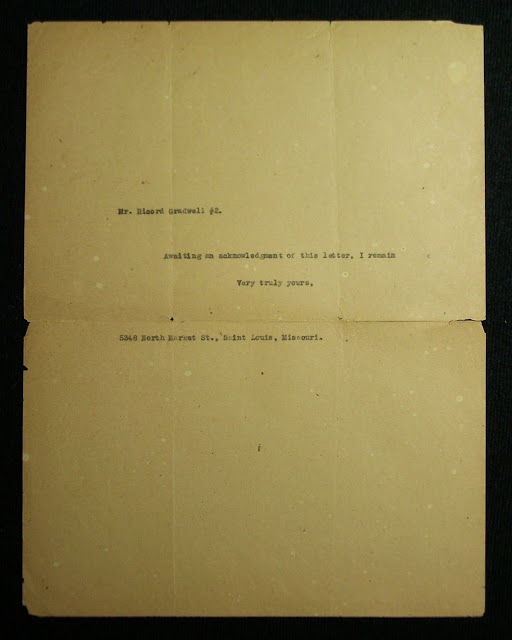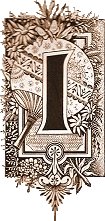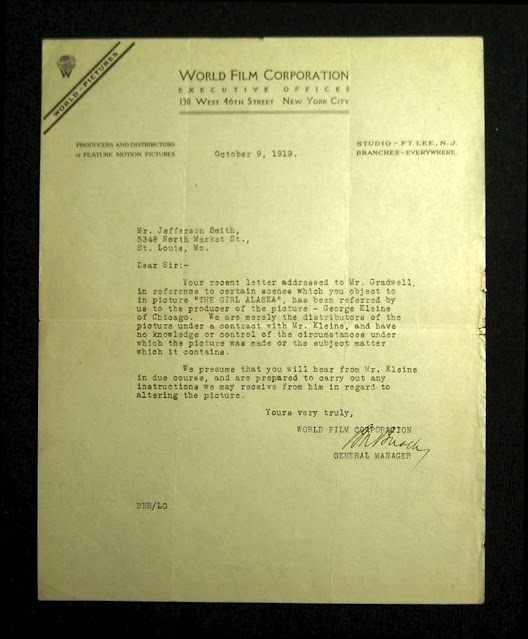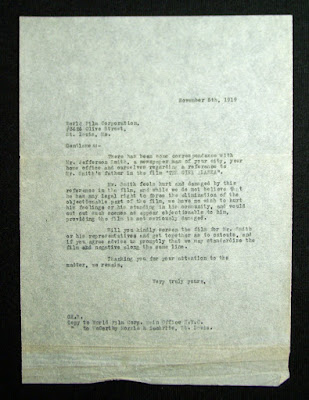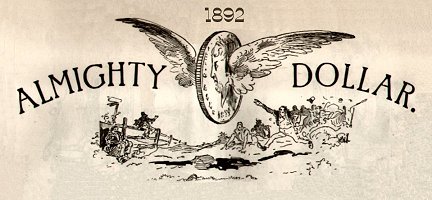 |
| Soapy Smith leading the pack Artifact #96-Front Page, Part 1 National Populist March 24, 1894 Jeff Smith collection |
(Click image to enlarge)
amblers, Thugs, Murders and Rogues.
"The alliance of the gamblers and bunco men with the old Fire and Police Board is not a pleasant thing to contemplate. It has come to a pretty pass if the interests of the city and the lives and property of citizens can't be protected without the assistance of such men."
Soapy Smith obtained a copy of the National Populist and saved it with all the newspapers, letters and documents he saved, much like a personal scrapbook.
The March 24, 1894 issue of the National Populist had a political cartoon right on the front cover. Soapy is at the front of the throng, "Soapy" scrawled across his coat. He is carrying two kegs that read, Dynamite." He leads the Committee of Safety, made up of Gambler's, Thugs, Murderers and Rogues. Others following Soapy are figures emblazoned with "Money," "Banker," "Politician," "Hobo," and "Gambler." Three signs are being carried by the followers; "Committee of Safety," "Governors have no power which gamblers need respect," and "We are a committee of Safety too."
 |
| Soapy Smith leading the pack Artifact #96-Front Page, Part 2 National Populist March 24, 1894 Jeff Smith collection |
(Click image to enlarge)
I cannot find another surviving copy of this newspaper, and this issue is falling apart, so it's impossible at this time to report on missing sections.
The left-hand column one is titled, MULLINS BARNES [the new city commissioners appointed by Governor Davis Waite]. Subtitles include, "The Supreme Court has Rendered a Decision," and, "AWFUL COMMISSIONERS." The article speaks of the Governors orders to send in the National Guard.
The second column is titled, THE COXEY ARMY. The "On to Washington" Movement Growing Daily. This is not related to the Denver City Hall War, but is directly related to Soapy, as he wrote a well-circulated, published piece on August 26, 1893, called, "MARCH ON! Let The Workingmen Go Straight To The National Capitol" that has plenty of circumstantial evidence that it gave Jacob Coxey (Coxey's Army) the idea to march to Washington D.C., seven months later, in March 1894.
The right-hand column six is titled, A WORD OF CENSURE - Thugs Aid a So-Called Committee of Safety. It speaks of men concerned with the safety of Denver, while also supporting those barricading inside city hall. The remaining pages of the newspaper regard other issues.
 |
| Soapy Smith leading the pack Artifact #96-Page 2, Part 1 National Populist March 24, 1894 Jeff Smith collection |
(Click image to enlarge)
 |
| Soapy Smith leading the pack Artifact #96-Page 2, Part 2 National Populist March 24, 1894 Jeff Smith collection |
(Click image to enlarge)
THE CITY HALL WAR
(The following is taken from Alias Soapy Smith: The Life and Death of a Scoundrel)
Denver was well known, though no more than Chicago, for its saloons with their risqué tableaus and saloon girls, houses of prostitution, “sure thing” cons, other frauds, and, though illegal, plentiful games of chance. Also well known was that “corruption, disorganization, and poor leadership” persisted in the police department. Governor Davis H. Waite, known as "Blood to the bridles," chose evil Denver to begin his reform of Colorado.
On Wednesday, March 7, 1894 the governor fired police and fire commissioners, Martin and Orr for malfeasance and neglect, and on the next day, he named their replacements: Dennis Mullins as fire commissioner and Samuel D. Barnes as police commissioner. The reaction was broad and immediate. Martin and Orr refused to vacate their offices. The issue went before the court and a settlement could not be reached that favored Governor Wait, so on March 14 he ordered out the Colorado National Guard. News on the evening of March 14 that the militia was marching on Denver triggered a call to arms. Policemen, firemen, politicians, and sheriff’s deputies were ordered to report for duty, and for the rest of the night, they came to the castle-like city hall at the northwest corner of Larimer and Fourteenth streets. The call was also heard beyond the rank-in-file of city employees. Generally accepted was that Waite’s appointees were ready to ban, permanently, all gambling in the city. This and that the new commissioners would be installed by force provoked the ire of the wagering community. Upwards of two hundred gamblers, bunco men, and “hard cases” came forward to be commissioned as deputy sheriffs and special police. To all of the assembling combatants, the governor threatened their world order, their loyalties, and, in such dire economic times, their livelihoods. They were prepared to fight, and Denver City Hall was the fort they chose to defend.
The Denver Republican reported that “Jeff Smith arrived at the head of the guerrilla contingent, and men wearing red badges bearing the words, ‘Special Police,’ began to grow numerous in the corridor.”
By 11 a.m., the streets were “blockaded with a seething mass” of spectators. Police Chief Stone appeared at one point to make a public statement:
We will hold the city hall against all attacks from the outside, if it takes dynamite to do it…. We have 110 men on duty, and they will be here as long as they are needed. They are all loyal men, and have been too long in the service to permit anyone to intimidate them. We are prepared for any emergency, and we will risk everything to protect the property which the citizens and tax-payers have entrusted to our care. No interference with the fire department will be permitted. The city hall will not be surrendered while the courts are dealing with the city. If the governor wants blood to the bridles we will give it to him; but he can’t have the city hall. (1)
The Denver Republican described the defensive force:
The solid stone building was now an arsenal and manned from the basement to the tower above the roof by armed men.In the basement were about 150 policemen, deputy sheriffs and special policemen. Every entrance was barricaded … by armed men. On the floor above 42 uniformed policemen faced the front door in close array, the front rank men to the number of 30 having rifles or shotguns. Flanking these were about 50 deputy sheriffs and specials [special police] carrying clubs and revolvers.On the second floor the Fire and Police board rooms, corridors and stairways were guarded by armed men. …
In the room to the east of the building on the third floor was the bomb brigade with their store of giant powder, dynamite, fuses and caps. The explosives were all ready to be hurled through the windows, and men accustomed to the handling of such missiles stood ready to use them. [This is Soapy and his men]A floor higher [were] knots of sharpshooters—men who have made records with the rifle and revolver—waited silently to pick off the gunners and militia officers at the first overt act. … But this was not all. Even the tower above the roof had its quota of riflemen ready to open fire at the first hostile movement of the state troops. (2)
After a tense period of waiting,
A delegation arrived with a message from the governor, stating that if the city hall was not vacated within thirty minutes orders would be sent to the troops to bombard the building with cannon balls. This created much excitement among the mob and much activity among the besieged garrison.Jeff Smith and five others climbed upstairs into the third story and took up places at two windows. They took ready-to-fling stacks of giant powder and dynamite torpedoes [to throw] into the street as soon as the militia menaced the civic citadel. (3)
Various other sources report that Jeff, wearing two .45 caliber revolvers, stood with a contingent of his men, at the ready with a
large quantity of dynamite. The men had all been sworn to defend the building against the attack of the militia and the most desperate and disreputable characters in the city had been employed to explode the dynamite without regard to the consequences…. The explosives were fitted with fuses and detonating caps, and were to be hurled into the midst of the state troops if they approached the hall too closely. (4)
The Denver Times reported how at one point Jeff leaned out, apparently with dynamite in hand, and called down to soldiers near the city hall perimeter.
Say, you guys had better make a sneak. I've got enough of the stuff to send us all to hell, and as I am nearer to heaven than any of you, I'll not be the first to die. (5)
The standoff between the heavily armed, determined forces was intense, but cooler heads prevailed and no shots were ever fired. The city powers, the police and the Denver underworld saw great bravery in Soapy Smith, the Denver Mercury calling his a brave hero, adding,
Col. Jeff Smith is called the king gambler, “Soapy,” a “sure thing” and God only knows what, by a gang of parasites who are no good on earth; but gambler as he is, he exhibited more manhood in standing by the courts and peace officers than nineteenth twentieth’s of those moral pulpit-pounding ministers who are always howling against the saloons and club rooms.People who believe in giving justice to whom justice is due, will now please admit that Col. Jefferson R. Smith has established the undisputed right to be called one of Denver’s most reliable citizens. And that’s what he is. (6)
The City Hall War received national attention, and people wanted to know more. On March 19 when the Colorado Washington delegation was asked about it, Jeff’s old neighbor and former lawyer Congressman Lafe Pence was willing to speak up:
“SOAPY” SMITH.
Who the Leader of the Denver Opponents to Governor Waite Is.
Washington, March 20.—Governor Waite of Colorado and his recent actions form a common topic of current gossip. No one is better able to talk of Colorado matters than that brilliant young representative, Lafe Pence. He told a good story of "Soapy” Smith, whose recent exploits in Denver at the head of the mob is much talked of. “He is one of the greatest characters in the west,” said Mr. Pence. “He is probably not over 30 years of age, and by no means impressive in his build. He is, however, the king of the lawless element in Denver. If Smith and four men were in the city hall tower and five dynamite bombs were thrown into the militia, the world would naturally say that Smith and the other four men each threw one. But I am willing to bet that if the bombs had been thrown and Smith had been indicted, each of his four companions would have sworn that Smith begged them not to throw a single bomb, and that in the scuffle one of the men threw two, which would account for the five. You never knew anyone to have such power. He never lets one of his followers go hungry if he has a dollar in his pocket, and they know it. (7)
Soapy was seen as a man who would risk his life for his allies in political office. He was a man they could trust. But the rest of Colorado saw that Denver was run by corruption and criminals. Though Soapy's reign prospered for another 1-1/2 years, there are some historians that mark the City Hall Wall as the turning point of Soapy's empire in Denver.
 |
| Soapy Smith leading the pack Artifact #96-Page 3, Bottom National Populist March 24, 1894 (The top portion of this page is missing) Jeff Smith collection |
(Click image to enlarge)
 |
| Soapy Smith leading the pack Artifact #96-Page 4, Bottom National Populist March 24, 1894 (The top portion of this page is missing) Jeff Smith collection |
(Click image to enlarge)
NOTES:
(1) Decatur Daily Republican 03/16/1894.
(2) Denver Republican 03/16/1894.
(3) IBID.
(4) IBID.
(5) Denver Times 08/01/1898.
(6) Newspaper clipping of unknown origin regarding story in The Denver Mercury, March (unknown date) 1894.
(7) Register 03/23/1894
Oct 20, 2013
City Hall War: pages 3, 59, 292, 294, 298, 310, 312, 321, 328-29, 334, 359, 379, 390, 594.
City Hall War: pages 3, 59, 292, 294, 298, 310, 312, 321, 328-29, 334, 359, 379, 390, 594.
"If, after the first twenty minutes, you don't know who the sucker at the table is, it's you."
—author unknown











